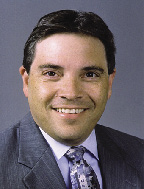The retail leasing industry has faced challenging times the last few years. In any turbulent economy, however, there is also opportunity for growth. This article discusses opportunities that are appearing to reinvent retail centers during the next year, and beyond.
One of the obvious changes in the retail environment has been a significant decrease in the number of big box tenants. Larger tenants, such as Circuit City, Filene's Basement, Linens & Things, Blockbuster and Borders are no longer on the scene. Others are scaling back on opening new stores or downsizing their existing locations. The result for shopping centers is that large amounts of space have reappeared on the market, sometimes without appropriately sized tenants to fill those spaces.
This has left many center owners scrambling to maintain a strong merchandise mix and synergy. In addition, landlords have to be wary of looming co-tenancy issues. The loss of one or two stores can give other stores in a center the right to: (a) shift to alternate rents, such as reduced base rent or percentage only, or (b) terminate the other tenant's lease, after the passage of a period of time. This can create a domino effect for the center. Many tenants actually look for these vulnerable locations in order to renegotiate terms.
Within the past year, however, centers have shown an increasing trend to reinvent themselves, and to make centers more attractive for the retailers that are growing today. Larger centers see an opportunity to redevelop into lifestyle, by replacing these vacant boxes with multiple specialty tenants and restaurants. Conversely, older, lifestyle centers, that formerly catered to specialty stores, have seen an opportunity for rebranding with slightly larger tenant sizes. As leases for specialty stores expire, or are not renewed, a landlord can combine that smaller space into a mid-sized space, creating a newer, larger box to offer to today's tenancies. In both cases, the goal has become flexibility, to expand or contract as needed to fit the needs of tenants and shopping centers.
As a result, large box centers have subdivided their boxes, in order to attract today's smaller, mid-sized tenants. A similar trend is developing in the traditionally smaller centers, which now can increase box sizes to attract larger tenants. For both, the key in today's environment is flexibility. While the big boxes may be gone, there are opportunities for the 6,000 to 15,000 s/f tenants in each type of center.
In fact, tenants do exist, in this economy, that are interested in taking new space. The furniture, restaurant, arts and crafts and fast casual categories are all very active. In addition, as one might expect in a slow economy, the value stores are expanding.
One example of space re-invention that has been recently engineered is at the Falmouth Mall in Falmouth, Mass. The mall had been a mixed mall with an area of small shop spaces which is currently being combined into one larger box. This new box will house a Michael's store. With the construction of the Michael's store, the mall will complete its transformation from an enclosed mall to a big box format with tenants such as Wal-Mart, TJ Maxx, Homegoods, Shaws and a Cinema Pub.
In the Dedham Mall, an Old Navy downsized within the mall. This resulted in an opportunity to create space for Five Below. The addition of Five Below further strengthened the merchandise mix of the center. Finally, the Garden City Center in Cranston, R.I. plans an expansion of the specialty shopping at the center into the area previously occupied by big box retail. Garden City has had a waiting list of specialty tenants that are eager to take on portions of the former large box space. This will reposition the center for the next several years.
In summary, the coming year will see more activity with revitalizing and rebranding existing centers. Landlords who are nimble enough to change with the economy will find opportunity for growth in the next few years.
Robert Orsi is a partner at Orsi Arone Rothenberg, Attorneys at Law, Needham, Mass. and Deborah DiMeo is vice president, leasing at The Wilder Companies, Boston, Mass.
Tags:
The coming year will see more activity with revitalizing and rebranding existing centers
January 26, 2012 - Retail










